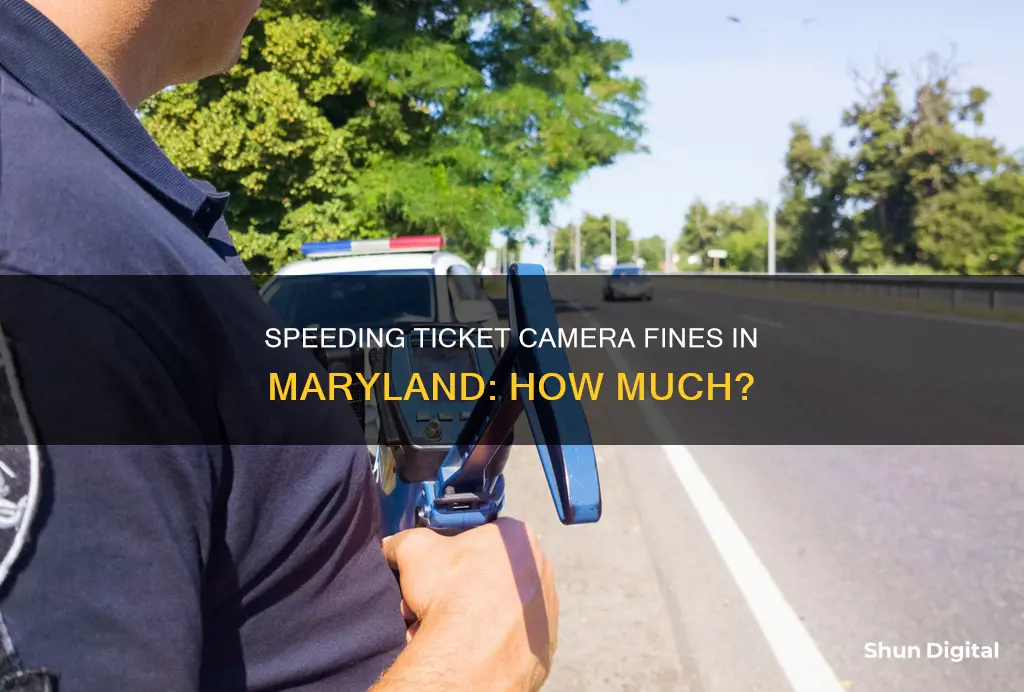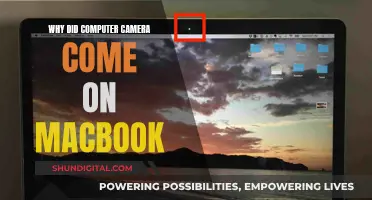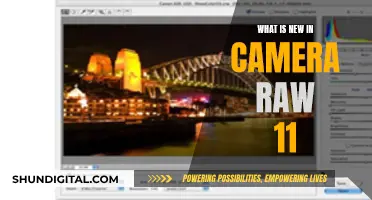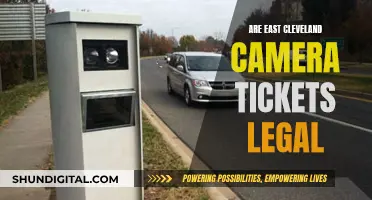
In Maryland, speed cameras are placed in residential areas and school zones with speed limits of 35 miles per hour or less. These cameras are triggered when a vehicle is travelling 12 or more miles per hour over the speed limit, and a citation is then mailed to the owner of the vehicle. The fine for a speeding ticket in Maryland is $40, and there are no points assigned to the individual's driver's record. If the ticket is not paid on time, the fine can increase substantially.
| Characteristics | Values |
|---|---|
| Fine | $40 |
| Points on license | 0 |
| Insurance providers notified | No |
| Appeal period | 30 days |
| Appeal court | Howard County District Court |
| Appeal cost | Free |
| Appeal evidence | e.g. certified statement from employer, medical professional's documentation |
| Payment methods | Online, by mail, by phone, in person |
What You'll Learn

Contesting a speeding ticket in Maryland
In Maryland, speed cameras are used to enforce speed limits in areas prone to speeding, such as school zones, residential neighbourhoods, and construction sites. When a vehicle is travelling at least 12 miles per hour over the speed limit, the speed camera will capture a photograph of the vehicle, including the license plate. The owner of the vehicle will then be mailed a copy of the violation, including photographs and the speed the vehicle was travelling.
The standard fine for a speed camera ticket in Maryland is $40, and these tickets do not result in points being added to your driving record. The citation will provide information on how to pay the fine online, by mail, or in person, as well as how to request a hearing if you choose to contest the ticket.
If you decide to contest a speeding ticket in Maryland, here are the steps you can take:
Request a Hearing
- When you receive the ticket, it will include information about the violation and instructions on how to contest it.
- Decide to contest the ticket and request a hearing, usually done by mail, online, or by calling the provided contact number on the ticket.
- Ensure you request the hearing within the specified timeframe, typically within 30 days from the date of the citation, to avoid additional penalties or fees.
Gather Evidence
- Collect any evidence that supports your case, such as photographs of the area where the violation occurred, maintenance records of the speed camera, and statements from any passengers or witnesses.
- Bring all relevant documentation, such as the ticket itself, your vehicle registration, and any correspondence related to the ticket.
Challenge the Accuracy of the Camera
Request maintenance and calibration records to determine if the camera was functioning correctly at the time of the violation.
Argue Against Signage Issues
Claim that the signage indicating the speed limit and the presence of speed cameras was missing, obscured, or incorrectly placed. Take photos of the current state of the signage to support your argument.
Prove Mistaken Identity
If you believe the camera captured the wrong vehicle, gather evidence to prove that you were not driving in that area at the time of the violation.
Present Your Case Clearly
Prepare your presentation by organising your evidence and arguments in a clear and concise manner. Practice your statements to ensure you cover all relevant points effectively.
Understand the Outcome Decision
- The judge will examine the evidence and listen to both your argument and the prosecution’s case. They may ask questions to clarify any points.
- Based on the presented evidence, the judge will decide whether to uphold the ticket, reduce the fine, or dismiss the ticket entirely.
It is important to note that contesting a speeding ticket in Maryland requires careful preparation and a clear understanding of your rights and the legal process. Consulting with a traffic attorney can provide additional support and guidance throughout this process.
Travel Light: Camera Gear, Luggage Insert
You may want to see also

Appealing a ticket decision
In Maryland, speed cameras are placed in areas that are prone to speeding, such as school zones, residential neighbourhoods, and construction sites. These cameras are designed to capture images of vehicles exceeding the speed limit, and the recorded photographs are then reviewed by police officers to identify the owner of the vehicle. The owner will then be mailed a copy of the violation, including photographs and the speed the vehicle was travelling.
If you receive a speeding ticket in Maryland, you have several options:
Option 1: Pay the Fine
The standard fine for a speed camera ticket in Maryland is $40, and it can be paid online, in person, or by mail. Paying the fine is equivalent to pleading guilty, and this will be reflected on your driving record. Additionally, the Maryland Motor Vehicle Administration (MVA) may assess points on your license, which could increase your insurance premiums.
Option 2: Request a Waiver Hearing
If you choose to plead guilty but want to request a reduction or waiver of your fine, or ask for probation instead of a conviction, you can request a waiver hearing. This option allows you to explain the circumstances of your violation to the judge and request leniency. However, there is a possibility that the judge may increase your fine, up to a maximum of $500.
Option 3: Request a Trial
If you believe you are not guilty of the speeding violation, you can request a trial within 30 days of receiving the citation. During the trial, the police officer who issued the ticket must appear in court to explain the basis for the ticket. You have the right to present your side of the case and challenge the evidence presented against you. If you hire an attorney, they can represent you in court and handle the entire case without you needing to appear.
Option 4: Contest the Ticket
You have the right to contest a speed camera ticket in Maryland. Common reasons for contesting a ticket include calibration issues with the camera, improper signage, or mistaken identity. When contesting a ticket, you will need to gather relevant evidence, such as photographs of the area, maintenance records of the camera, and statements from witnesses. You can request a hearing by mail, online, or by calling the provided contact number on the ticket, usually within 30 days of receiving the citation.
If you contest your ticket and are unsatisfied with the judge's decision, you have the right to appeal within 30 days. An experienced traffic ticket lawyer can guide you through the appeals process and help you build a strong case. They can challenge the accuracy of the camera, argue against improper signage, or provide evidence of mistaken identity. Additionally, an attorney can request a reduction in fines or argue for a dismissal of the citation.
Working with an Attorney
Consulting and working with an attorney is highly recommended when dealing with a speeding ticket in Maryland. A speeding ticket attorney can assist you in mounting a defence, minimizing potential penalties, and navigating the complex legal process. They can also represent you in court, allowing you to avoid appearing in person.
Best Camera for Nighttime Portrait Mode on the Galaxy S22
You may want to see also

Paying a speeding ticket fine
In Maryland, speed cameras are placed in residential areas and school zones where the speed limit is 35 miles per hour or less. These cameras are designed to capture vehicles travelling 12 or more miles per hour over the posted speed limit. When this happens, the camera takes a photograph of the vehicle, including the license plate, and a citation is mailed to the registered owner. This citation includes a copy of the violation, photographs, and the speed the vehicle was travelling.
If you receive a speeding ticket in Maryland, you have a few options for how to handle it:
Paying the Fine
The first option is to simply pay the fine. Speeding tickets in Maryland typically carry a $40 fine, which can increase if not paid on time. You can usually pay the fine online, by mail, or in person. Paying the fine is considered a conviction and will result in points being added to your driving record, which can affect your car insurance.
Contesting the Ticket
If you believe you are not guilty of the offence, you can choose to contest the ticket. This must be done within a certain timeframe, usually specified on the citation. You will need to follow the instructions provided on the citation for appealing the ticket, which may include submitting an affidavit or other relevant evidence. Contesting a ticket can result in a reduction of fines or even a dismissal of the citation.
Hiring an Attorney
If you wish to contest the ticket, you may also consider hiring an attorney to assist you. A speeding ticket attorney can help you mount a defence and work to minimise or reduce any potential penalties. They can guide you through the process and improve your chances of a favourable outcome.
It is important to remember that failing to respond to a speeding ticket can result in additional fees and penalties. Therefore, it is advisable to take prompt action, either by paying the fine or initiating the process to contest the ticket.
Cameras Beyond China: Exploring Alternative Manufacturing Hubs
You may want to see also

Avoiding additional fees and penalties
If you receive a speeding ticket in Maryland, you must take action within 30 days to avoid additional fees and penalties. You have four options:
- Pay the full fine and plead guilty.
- Request to enter into a payment plan if you have at least $150 in total outstanding fines and are otherwise eligible.
- Ask for a waiver hearing to plead "guilty with an explanation."
- Ask for a trial to plead "not guilty."
If you do not respond within 30 days, the Motor Vehicle Administration (MVA) will be notified and may take action to suspend your driver's license. Driving with a suspended license is a criminal offense that could result in incarceration.
If you receive a speeding ticket from a speed camera, you will be mailed a copy of the violation, including photographs and the speed your vehicle was traveling. These tickets carry a $40 fine and are considered civil violations, so no points will be added to your driver's license and your insurance provider will not be notified.
If you wish to contest a speed camera ticket, you must do so at least five days before the due date of the fine. You will need to follow the instructions for appealing the ticket, which are listed on the back of the citation. You may need to provide an affidavit or other evidence to support your case.
Echomaster Camera: Where Are These Devices Manufactured?
You may want to see also

Speeding camera locations
Speed cameras are located throughout every county in Maryland, including Howard County, Montgomery County, Prince George's County, Charles County, Calvert County, and St. Mary's County. The cameras are placed in school zones, residential areas, work zones on freeways and major highways, and streets in Montgomery County.
In Howard County, speed cameras are placed near schools, including along student walking routes. The specific locations for speed cameras are determined based on criteria such as the proximity of schools, parks, work zones, and crosswalks.
In Montgomery County, the speed camera locations are available on the county's official website.
In Prince George's County, Charles County, and Calvert County, the speed zone locations are published on the local jurisdiction's website and in a local newspaper.
While many speed cameras are portable and moved regularly, some are fixed and can be found on online maps.
The Evolution of Movie Cameras: A Historical Perspective
You may want to see also
Frequently asked questions
A speeding ticket from a camera in Maryland carries a fine of $40 for each violation.
If you don't pay your speeding ticket fine on time, it can increase substantially.
You can pay a speeding ticket fine in Maryland online, by mail, by phone, or in person.
If you ignore a speeding ticket from a camera in Maryland, you may be subject to additional fees and penalties, and your driver's license may be suspended.
Yes, you can contest a speeding ticket from a camera in Maryland by requesting a hearing or a trial. You must do this within a specified time frame, usually within 30 days of receiving the citation.







